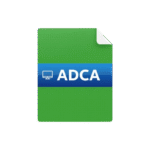Why Learn C Programming?
C programming serves as a crucial bridge between human instructions and the digital world. It provides foundational coding skills and opens doors to multiple career opportunities.
Read more
Understanding C Programming
Computers rely on programming languages to interpret instructions. C, being a middle-level language, balances low-level and high-level programming. It is widely used in both operating systems and application-level development.
Versatility and Foundational Skills
- Versatility: C interacts with various hardware types and is portable across platforms.
- Foundational Skills: Learning C strengthens coding concepts like data types, variables, loops, and functions.
Career Opportunities
Proficiency in C can lead to exciting careers in system programming, embedded systems, firmware development, and more.
Learning C with Educlentt
- Practical Curriculum: Hands-on learning beyond theory.
- Experienced Instructors: Professionals simplify complex concepts.
- Interactive Learning: Ask questions and participate actively in discussions.
- Hands-On Projects: Work on real-world projects and build your portfolio.
- Placement Support: Get dedicated interview prep and industry insights.
Demand for C in Today’s Time
- Legacy Systems: Operating systems like Windows, Linux, and Mac OS, and databases like Oracle, rely on C.
- Performance & Efficiency: C allows direct hardware interaction and precise memory management.
- Embedded Systems & IoT: Ideal for microcontrollers, industrial automation, and real-time applications.
- High-Performance Computing: Used in supercomputers and scientific simulations.
- Cross-Platform Development: C code can be compiled for multiple platforms.
- System-Level Programming: Essential for device drivers, file systems, and network protocols.
- Job Opportunities: Companies seek C developers for system maintenance and development roles.
How Long Does it Take to Master C?
The timeline varies by individual, but here’s a professional approach:
- Introduction to C: Basics, compiling programs, “Hello World”.
- Variables, Data Types & Operators.
- Control Flow Statements: Conditional statements and loops.
- Functions & Pointers.
- Arrays & Strings.
- Structures & File Handling.
- Dynamic Memory Allocation.
- Advanced Concepts: Recursion, bitwise operations, etc.
Learn C Programming – Step-by-Step Guide
Read More
Set Clear Goals
Define why you want to learn C. Is it for personal projects, job opportunities, or academic purposes?
Choose Learning Resources
- Online Tutorials: Explore platforms like Coursera, edX, and Udemy for structured courses.
- Books: Consider classics like “C Programming Absolute Beginner’s Guide” by Perry and Miller.
- Websites: Visit GeeksforGeeks, Learn-C.org, and Codecademy for tutorials and exercises.
Learn the Basics
- Syntax: Understand C’s syntax, keywords, and rules.
- Variables and Data Types: Learn about integers, floats, characters, and pointers.
- Operators: Study arithmetic, logical, and relational operators.
Practice Coding
- Start with simple programs (e.g., printing patterns, calculating factorial).
- Solve coding challenges on platforms like LeetCode and HackerRank.
Understand Control Flow
Learn about loops (for, while) and conditional statements (if, switch).
Functions and Pointers
Explore functions, function prototypes, pointers, and memory allocation/deallocation.
Arrays and Strings
Work with single- and multi-dimensional arrays and manipulate strings using C’s string functions.
Structures and File Handling
Learn about structures (structs), unions, and file I/O operations (reading/writing files).
Dynamic Memory Allocation
Explore dynamic memory allocation using malloc and free.
Advanced Topics
Study recursion, bitwise operators, preprocessor directives, and dive into complex projects.
Projects and Real-World Applications
Build small projects like a calculator or student database, and contribute to open-source projects.
Practice Regularly
Consistent practice is key. Debug your code and learn from mistakes.

C Programming – FAQs
1. Why Educlentt is better than other institutes for the C language course?
Educlentt excels in C language instruction due to its experienced faculty, comprehensive curriculum, and personalized support, offering students a superior learning experience and the skills needed to succeed in programming.
2. What background knowledge do I need for the C language course?
No prior programming experience is required for our C language course. It’s designed for beginners, covering fundamental concepts to build a strong foundation in programming.
3. How will this course help me in my career or academic pursuits?
Learning C language equips you with essential programming skills widely used in software development, embedded systems, and more. It lays a solid groundwork for further study in computer science and enhances employability in various industries.
4. What kind of support and resources are available to students during the course?
Throughout the course, you’ll have access to experienced instructors who provide personalized guidance and support. Additionally, we offer a range of resources including lecture materials, coding exercises, and a dedicated online platform for interaction and collaboration with peers.
C programming serves as a crucial bridge between human instructions and the digital realm. Here’s why it’s worth exploring:
- Understanding Commands:
- Computers rely on programming languages to interpret our instructions. C, being a middle-level language, strikes a balance between low-level and high-level languages. It’s used for both operating systems and application-level programming.
- Versatility:
- C’s robustness allows it to interact with various hardware types, not just desktops and laptops. It’s portable and widely applicable.
- Foundational Skills:
- Learning C provides a strong foundation in coding concepts like data types, variables, loops, and functions. These skills are essential for software development.
- Career Opportunities:
- Proficiency in C opens doors to exciting career paths, from system programming to embedded systems development.
If you’re curious about C, consider exploring online courses or tutorials to unlock its potential!
Why should you consider embarking on a C learning journey with Educlentt?
If you’re diving into app development, mastering Objective-C is crucial, especially for iOS apps. Look no further than Educlentt, a premier C Programming Institute in Noida. Here’s why Educlentt stands out:
- Practical Curriculum:
- Educlentt’s Objective-C course goes beyond theory. It equips you with practical knowledge directly applicable to real-world app development scenarios. You’ll learn to code effectively, not just memorize syntax.
- Experienced Instructors:
- Imagine being guided by instructors who’ve built successful apps themselves! Educlentt’s faculty comprises seasoned professionals who simplify complex concepts.
- Interactive Learning:
- Learning shouldn’t be one-way. Educlentt fosters an interactive environment where you can ask questions, clarify doubts, and actively participate in discussions.
- Hands-On Projects:
- Solidify your understanding by working on real-world projects. This practical experience sharpens your coding skills and builds a portfolio for potential employers.
- Placement Support:
- Educlentt offers dedicated placement assistance, including interview prep and industry insights. Secure your dream app development job with confidence!
Demand of C language in Today’s Time?
C programming remains relevant and essential in today’s tech landscape. Here are some key points:
- Legacy Systems and Infrastructure:
- Many critical systems, including operating systems like Microsoft Windows, Linux, and Mac OS, rely on C. These systems were developed decades ago and continue to be maintained in C.
- The UNIX operating system, Oracle database, and the Linux kernel are prime examples of long-standing C projects.
- Performance and Efficiency:
- C is a low-level language that allows programmers to write code that executes efficiently and directly interacts with hardware.
- It provides fine-grained control over memory management, making it ideal for resource-constrained environments.
- Embedded Systems and IoT:
- C is widely used in embedded systems, such as microcontrollers, industrial automation, and IoT devices.
- Its small footprint and predictable behavior make it suitable for real-time applications.
- Supercomputers and High-Performance Computing:
- Approximately 97% of the world’s top 500 supercomputers run the Linux kernel, which is primarily written in C.
- C’s performance benefits are crucial for scientific simulations, weather forecasting, and other compute-intensive tasks.
- Cross-Platform Development:
- C code can be compiled for various platforms without major modifications.
- Developers can write once and deploy on multiple systems, including desktops, servers, and mobile devices.
- System-Level Programming:
- C is the language of choice for system-level programming, including device drivers, file systems, and network protocols.
- It provides direct access to hardware components, enabling efficient I/O operations.
- Industry Demand and Job Opportunities:
- Despite newer languages, companies still seek C developers for maintaining existing systems and building new ones.
- Learning C opens doors to diverse job roles, from firmware engineers to system architects.
In summary, C’s longevity, performance, and versatility make it a must-learn language for aspiring programmers and professionals alike.
In How Much Time Can I Master C Language?
The time it takes to master the C programming language varies based on individual factors such as prior experience, learning pace, and dedication. However, here’s a structured approach inspired by professionals:
- Introduction to C Language:
- Understand basics, compile/run programs, create a “Hello World” program.
- Variables, Data Types & Operators:
- Study variables, data types, and operators.
- Control Flow Statements:
- Learn conditional statements and loops.
- Functions and Pointers:
- Explore functions and pointers.
- Arrays and Strings:
- Work with arrays and manipulate strings.
- Structures and File Handling:
- Learn about structures and file I/O.
- Dynamic Memory Allocation:
- Explore dynamic memory allocation.
- Advanced Concepts:
- Study recursion, bitwise operators, and more
Learning C on your own can be a rewarding experience. Here’s a step-by-step guide to help you get started:
- Set Clear Goals:
- Define why you want to learn C. Is it for personal projects, job opportunities, or academic purposes?
- Choose Learning Resources:
- Online Tutorials: Explore platforms like Coursera, edX, and Udemy for structured courses.
- Books: Consider classics like “C Programming Absolute Beginner’s Guide” by Perry and Miller.
- Websites: Visit websites like GeeksforGeeks, Learn-C.org, and Codecademy.
- Learn the Basics:
- Syntax: Understand C’s syntax, keywords, and rules.
- Variables and Data Types: Learn about integers, floats, characters, and pointers.
- Operators: Study arithmetic, logical, and relational operators.
- Practice Coding:
- Start with simple programs (e.g., printing patterns, calculating factorial).
- Solve coding challenges on platforms like LeetCode and HackerRank.
- Understand Control Flow:
- Learn about loops (for, while) and conditional statements (if, switch).
- Functions and Pointers:
- Explore functions, function prototypes, and pointers.
- Understand memory allocation and deallocation.
- Arrays and Strings:
- Work with arrays (single-dimensional and multi-dimensional).
- Manipulate strings using C’s string functions.
- Structures and File Handling:
- Learn about structures (structs) and unions.
- Understand file I/O operations (reading/writing files).
- Dynamic Memory Allocation:
- Explore dynamic memory allocation using malloc and free.
- Advanced Topics:
- Study recursion, bitwise operators, and preprocessor directives.
- Dive into more complex projects.
- Projects and Real-World Applications:
- Build small projects (e.g., calculator, student database).
- Contribute to open-source projects.
- Practice Regularly:
- Consistent practice is key to mastering any language.
- Debug your code and learn from mistakes.
1. Why Educlentt is better than other institutes for C language course?
Educlentt excels in C language instruction due to its experienced faculty, comprehensive curriculum, and personalized support, offering students a superior learning experience and the skills needed to succeed in programming.
2. What background knowledge do I need for the C language course?
No prior programming experience is required for our C language course. It’s designed for beginners, covering fundamental concepts to build a strong foundation in programming.
3. How will this course help me in my career or academic pursuits?
Learning C language equips you with essential programming skills widely used in software development, embedded systems, and more. It lays a solid groundwork for further study in computer science and enhances employability in various industries.
4. What kind of support and resources are available to students during the course?
Throughout the course, you’ll have access to experienced instructors who provide personalized guidance and support. Additionally, we offer a range of resources including lecture materials, coding exercises, and a dedicated online platform for interaction and collaboration with peers.
Enquire Now

Learn The Essential Skills

Get Ready for The Next Career

Earn Certificates And Degrees

Master At Different Areas

Learn The Essential Skills

Get Ready for The Next Career

Earn Certificates And Degrees

Master At Different Areas
Find Right Course For You

Still Confused Which Course to Choose?
Don’t Worry, Our Experts are here to Guide You.
Still Confused Which Course to Choose?
Don’t Worry, Our Experts are here to Guide You.
At Educlentt, we believe that education is the foundation for a brighter future. Our mission is to provide high-quality, accessible, and personalized learning experiences for students of all ages. Whether you’re looking to enhance your skills, advance your career, or explore new knowledge areas, we offer a wide range of courses designed to meet your needs. With a team of experienced educators and industry professionals, Educlentt is committed to empowering learners through innovative teaching methods and comprehensive course material.
Student Testimonials





Student Testimonial

Lorem ipsum dolor sit amet, consectetur adipiscing elit. Curabitur laoreet cursus volutpat. Aliquam sit amet ligula et justo tincidunt laoreet non vitae lorem. Aliquam porttitor tellus enim, eget commodo augue porta ut. Maecenas lobortis ligula vel tellus sagittis ullamcorperv vestibulum pellentesque cursutu.

Lorem ipsum dolor sit amet, consectetur adipiscing elit. Curabitur laoreet cursus volutpat. Aliquam sit amet ligula et justo tincidunt laoreet non vitae lorem. Aliquam porttitor tellus enim, eget commodo augue porta ut. Maecenas lobortis ligula vel tellus sagittis ullamcorperv vestibulum pellentesque cursutu.

Lorem ipsum dolor sit amet, consectetur adipiscing elit. Curabitur laoreet cursus volutpat. Aliquam sit amet ligula et justo tincidunt laoreet non vitae lorem. Aliquam porttitor tellus enim, eget commodo augue porta ut. Maecenas lobortis ligula vel tellus sagittis ullamcorperv vestibulum pellentesque cursutu.

Lorem ipsum dolor sit amet, consectetur adipiscing elit. Curabitur laoreet cursus volutpat. Aliquam sit amet ligula et justo tincidunt laoreet non vitae lorem. Aliquam porttitor tellus enim, eget commodo augue porta ut. Maecenas lobortis ligula vel tellus sagittis ullamcorperv vestibulum pellentesque cursutu.








